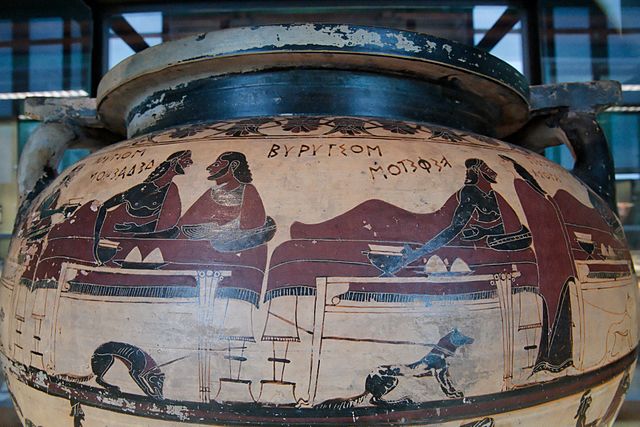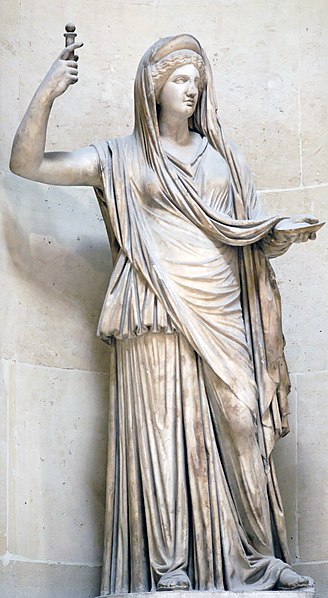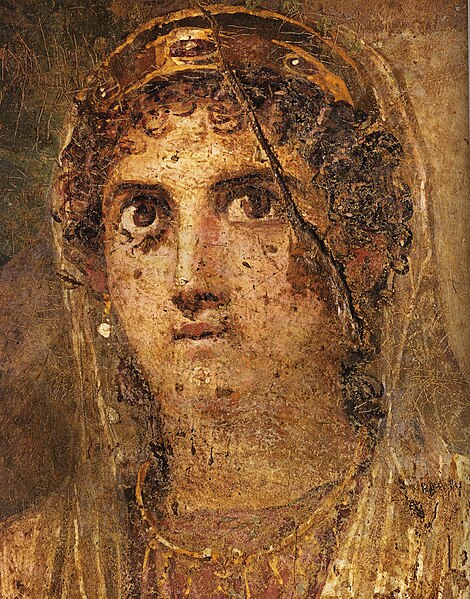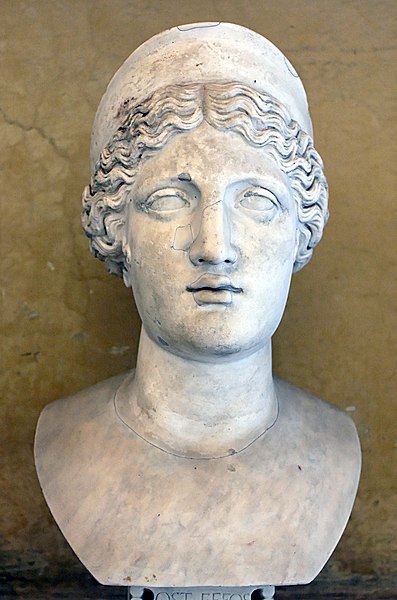Heracles, born Alcaeus or Alcides, was a divine hero in Greek mythology, the son of Zeus and Alcmene, and the foster son of Amphitryon. He was a descendant and half-brother of Perseus. He was the greatest of the Greek heroes, the ancestor of royal clans who claimed to be Heracleidae (Ἡρακλεῖδαι), and a champion of the Olympian order against chthonic monsters. In Rome and the modern West, he is known as Hercules, with whom the later Roman emperors, in particular Commodus and Maximian, often identified themselves. Details of his cult were adapted to Rome as well.
One of the most famous depictions of Heracles, Farnese Hercules, Roman marble statue on the basis of an original by Lysippos, 216 CE. National Archaeological Museum, Naples, Italy
Heracles carrying his son Hyllus looks at the centaur Nessus, who is about to carry Deianira across the river on his back. Antique fresco from Pompeii.
Greek mythology influenced the Etruscans. This vase at Caere shows King Eurytus of Oechalia and Heracles in a symposium. Krater of corinthian columns called 'Krater of Eurytion', c. 600 BCE
Heracles strangling snakes (detail from an Attic red-figured stamnos, c. 480–470 BCE)
In ancient Greek religion, Hera is the goddess of marriage, women, and family, and the protector of women during childbirth. In Greek mythology, she is queen of the twelve Olympians and Mount Olympus, sister and wife of Zeus, and daughter of the Titans Cronus and Rhea. One of her defining characteristics in myth is her jealous and vengeful nature in dealing with any who offended her, especially Zeus's numerous adulterous lovers and illegitimate offspring.
The Campana Hera, a Roman copy of a Hellenistic original, from the Louvre
Hera on an antique fresco from Pompeii
The Temple of Hera at Agrigento, Magna Graecia.
Roman copy of a Greek 5th century Hera of the "Barberini Hera" type, from the Museo Chiaramonti








